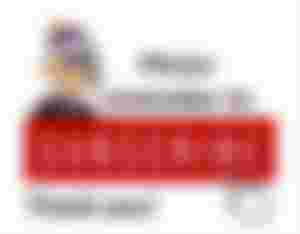3 September 2021, Somewhere in the Metaverse - UplandDood (@Just1Dood)
Written on 3 August 2021
As with Episode 1 and 2, I'll start with some disclaimers:
"Not Financial Advice. Do your own research. All thoughts are my own. Did not run through any checkers. Definitions if any, are respectively owned by the definers and attributed as such."
In the last two episodes, I'd talked about Passive Income and Residual Income and what they are. You can check out Episode 1 and Episode 2 if you haven't already. Though I'm not a financial planner and am not giving financial advice, I do think that what I have to share is important and that if you read them, it should get you thinking about your own financial habits. I do hope that in the long run, you will be a better steward because you have spent more time doing your own research and planning because you have read these articles.
The first two Episodes are foundational otherwise this next point is err...pointless towards anyone's financial freedom goal.
Let's continue with Episode 3 then.
Financial Sustainability
This is the motherlode. Yes, it is, in a sense. If it's not sustainable then don't even dream about achieving financial freedom.
Scouring the cyberspace, I've found that most definition relating to this world is mostly about the environment. This is surprising for me because if as an individual, we do not know what a roadmap to self-sustainability looks like, then we might as well forget about the bigger picture of the environment.
The best definition I can think of that fits in the series is by an organization named humentum. I've found this definition on their humentum.org website:
An organisation is financially sustainable if its core work will not collapse, even if external donor funding is withdrawn.
Let me put it another way.
An individual is financially sustainable if living his/her life is not impacted, even if his/her ACTIVE income is halted.
What this means is that his/her PASSIVE income is generating enough to sustain him/her. But that's not all. Read on to find out.
If you're not given enough oxygen to last a lifetime, then you are screwed. Get it? You want a lifetime's supply. A lifetime's supply is only possible through passive income.
What do I mean by sustainable?
Again, let me paint the picture for you.
Let's use the same example mentioned in Episode 2. We are assuming you have just paid off all the loans. And we further assume that after deducting your daily and miscellaneous expenses, you still have $1000 left. This is the residual income from your passive income.
You are far from financially free yet. Here's why.
God forbid, let's say that all of a sudden your house roof leaks and needs repairs, and in the same month, your car windshield was damaged and needed to be replaced. Total for both emergencies totaled $1500.
And you don't have any savings in your bank. Instead of having $1000 extra from your passive income, you are now $500 in the red.
How then do we become self-sustainable that we can be considered financially free?
Here are some points for further consideration.
Do you have enough saved up in your account to last a certain number of months if for some reason your passive income suddenly stops? E.g. 6 months, 1 year, 2 years, or 3 years? You have to determine how long that period is for you to be comfortable. Obviously the longer the period the better. The pandemics have shown us that the normal 6 months extra is not enough.
Is your residual income utilized to further generate an income for you?
Are you able to utilize your free time to generate other sources of passive income? Is this source dependable on to generate an income for your lifespan?
I'm sure there are many other factors to be considered but the above should be enough to get us thinking about our current situation.
Ideally, to be self-sustainable, we need to have an income that is continual, expenses that are below this amount (i.e. for the most part, living below our means), and enough in reserves to ride through any storms.
For some, it is a good idea to get advice from a certified financial planner. For others, it's a matter of taking time to take stock and know your position and plan accordingly.
We have heard of many stories of Rags-to-Riches. Rags-to-Richest stories are usually full of success principles. But what we don't hear about are the Riches-to-Rags stories. There are probably more of such untold stories and these are the stories that will sober us up. Ironically, Rags-to-Riches will cause us to dream and the other will wake us up.
What is Financial Freedom?
As we can observe from the simple examples in Episodes 2 and 3, it starts with getting rid of debts. I'd mentioned in Episode 2 that the biggest investment one can put their money in is in their own debts. Paying off credit card debts with an 18% or more interest rate is better than keeping that same amount in the bank earning less than 5% at best. DO NOT LET THE BANK TAKE YOUR MONEY through credit card interests.
Next is accumulating wealth. Take advantage of the compounding principles to increase your wealth faster. Never fall for shortcuts. There is no such thing as a free lunch. As mentioned in Episode 1, there is always a cost. A trade-off between time for money and money for time. The younger one starts, the better it is. But, it is never too late to start.
In closing, Financial Freedom is simply the resources enough to sustain your living needs until the day you leave earth.
Thank you for reading. I hope you have enjoyed this extended 3 episodes series. As you'll see again in the disclaimer below but I do hope this will get you started on building your way towards a financially free life!
[This is not financial advice. It is the writer's personal viewpoint. Please do your own research.]
Towards a #BetterSeptember!

Header: Unsplash.com - Sabrinna Ringquist
All Rights Reserved ©2021 UplandDood | #ClubBrokeBCH

Thank you again for dropping by. Have fun with English. Remember to share your experience in the comment section.
Do drop by to say hi at my following addresses. I promise I'll be at home :)
NoiseCash: UplandDood
Twitter: UplandDood
Publish0x: UplandDood (link takes you to site. You'll have to search for UplandDood to find me)

...and you will also help the author collect more tips.


For me, this point of sustainability is the hardest to achieve in the pursuit of financial freedom. Many times we believe that we are doing well, and suddenly unforeseen events change our reality from one moment to the next. Meanwhile, we keep working on the previous episodes. ;)